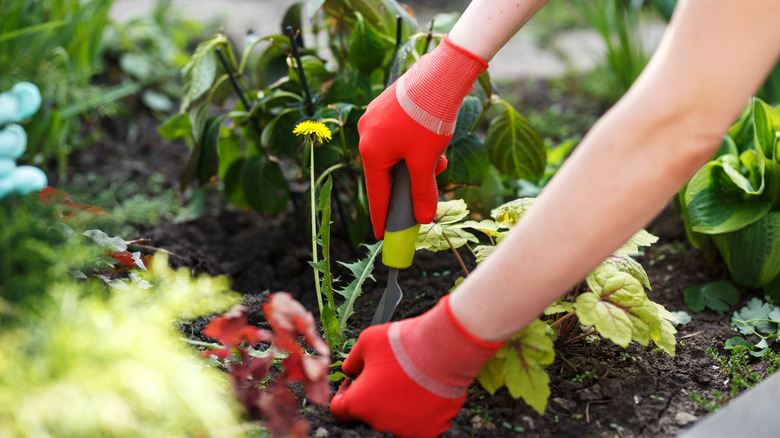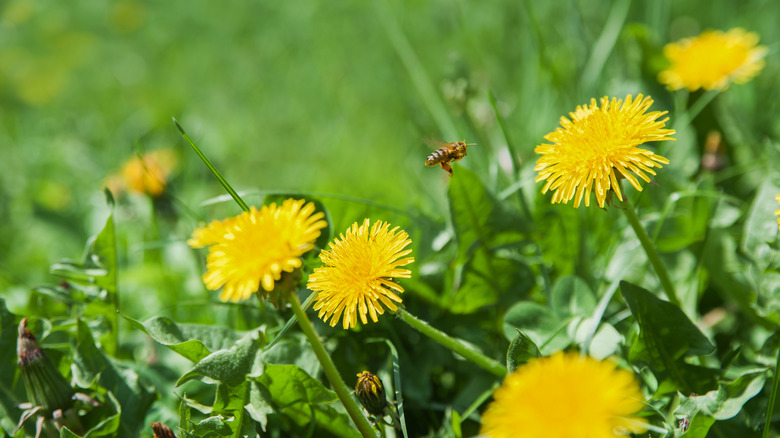Are Weeds Ever A Good Thing?
A key concern of gardeners and homeowners is keeping weeds out of lawns and gardens — that's because everyone knows that weeds are a bad thing. Right? Actually, the truth isn't quite as simple as that. Removing common lawn weeds is beneficial most of the time, sure. Doing so can help improve curb appeal and prevent them from competing with your plants for nutrients. If left unchecked, they'll take over the plants you're intentionally trying to grow and will pop up where they're not wanted.
But believe it or not, weeds can sometimes be a good thing. They tend to beneficial for the soil and can also give you insight into the soil's condition. On top of this, many weeds can also be useful for wildlife and beneficial insects. The soil improvement can benefit your yard or garden. Some weeds will pull nutrients and water up from the soil and make it more accessible to plants. Although many weeds compete with plants for nutrients, they can add nutrients to the surface once they die, which might be useful in the garden. Weeds can also improve the soil by providing extra shade and wind protection to it.
However, you always want to remove invasive and noxious weeds. While invasives are non-native plants that can spread rapidly, noxious weeds are designated as being particularly harmful to human or animal health, to public infrastructure, and more. While certain weeds can provide benefits, noxious weeds should be eradicated immediately. If you're not sure if your weeds are noxious, you can always check online at the Center for Invasive Species and Ecosystem Health website.
How weeds can improve your yard and garden
While taking soil samples of your lawn for testing is most effective, some weeds can also help you determine soil quality and condition. Many will only appear when there are certain levels of nutrients in the soil. Redroot pigweed, for example, appears in soil with high phosphorus levels, while lamb's quarters will appear when there's low levels of phosphorus in the soil. Dandelions like high-potassium yards. If you know which ones to look for, weeds can be very helpful for managing the soil in your yard and garden.
It's also important to note that many weeds can also benefit microorganisms, insects, and pollinators. Some of these ill-reputed plants attract butterflies, pollinators, birds, and other beneficial insects. But the usefulness isn't limited to the animal world — weeds can be beneficial for humans, too. Some are used for medicinal purposes, made into teas, or even eaten on salads.
With these benefits in mind, you may want to think twice before you remove the weeds that pop on your lawn or in your garden. Unless you're intentionally using weeds as a groundcover, you probably shouldn't let them spread too much. However, it can be advantageous to leave a few around if you want to attract helpful critters and experience the soil benefits that they provide — at the very least, pull up a few dandelions to make a cup of flower tea. Just make sure they haven't been treated with herbicides or pesticides, and that they're not too close to the road.

